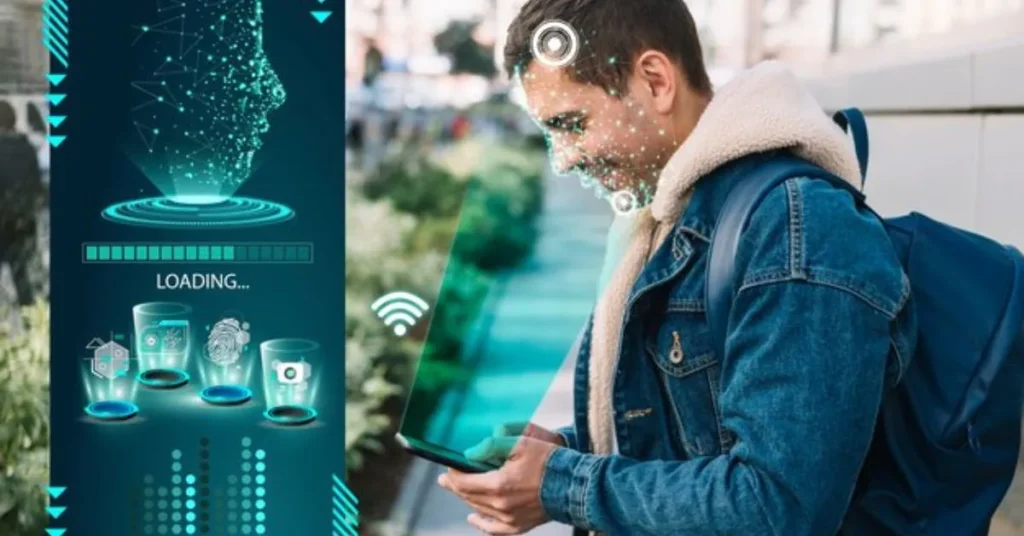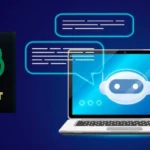Artificial Intelligence (AI) is no longer a concept confined to science fiction. It has seamlessly integrated into our daily lives, enhancing convenience, efficiency, and personalization in numerous ways. From the moment you wake up to the time you go to bed, AI touches various aspects of your routine, often without you even realizing it. Let’s dive into the myriad ways AI is shaping our everyday experiences.
AI in Communication
Chatbots and Virtual Assistants
Ever had a quick question and got an instant response from a chatbot on a website? Or perhaps you’ve asked Siri or Alexa to set a reminder, play music, or check the weather? These are prime examples of AI in communication. Chatbots and virtual assistants use natural language processing (NLP) to understand and respond to user queries. They streamline interactions, making it easier to get information or perform tasks without human intervention.
Language Translation Tools
Traveling to a foreign country or communicating with someone who speaks a different language has never been easier, thanks to AI-powered translation tools. Apps like Google Translate use AI to provide real-time translations, breaking down language barriers and enabling smoother communication across the globe.
AI in Entertainment
Personalized Recommendations
Ever wondered how Netflix always seems to know what you want to watch next? AI algorithms analyze your viewing history, preferences, and even the time of day you watch certain genres to recommend shows and movies tailored just for you. This personalization extends to music streaming services like Spotify, which curates playlists based on your listening habits.
AI in Video Games and Streaming Services
AI is revolutionizing the gaming industry by creating more realistic and challenging environments. From NPC (non-player character) behaviors to dynamic in-game scenarios, AI enhances the gaming experience. Similarly, streaming services use AI to manage bandwidth, reduce buffering, and enhance video quality based on the viewer’s internet speed.
AI in Home Automation
Smart Home Devices
Smart thermostats, lighting systems, and security cameras are becoming household staples. These devices learn your habits and preferences, adjusting settings to optimize comfort and security. For instance, a smart thermostat can learn your schedule and adjust the temperature accordingly, saving energy when you’re not home and ensuring a comfortable environment when you return.
Energy Management Systems
AI-powered energy management systems monitor and analyze energy usage patterns. They suggest ways to reduce consumption, switch off unused devices, and even control renewable energy sources like solar panels, making your home more energy-efficient and environmentally friendly.
AI in Healthcare
Diagnostic Tools
AI is making waves in healthcare by aiding in early diagnosis and treatment planning. AI-powered diagnostic tools can analyze medical images, detect abnormalities, and even predict diseases based on patient data. This results in faster, more accurate diagnoses, often before symptoms become apparent.
Personalized Medicine
The concept of personalized medicine is becoming a reality with AI. By analyzing genetic information and medical history, AI can help tailor treatments to individual patients, improving outcomes and minimizing side effects.
AI in Transportation
Autonomous Vehicles
Self-driving cars are no longer a futuristic dream. Companies like Tesla are at the forefront of this technology, using AI to navigate roads, avoid obstacles, and make real-time driving decisions. Autonomous vehicles promise to reduce accidents and make transportation more efficient.
Traffic Management Systems
AI helps manage traffic flow in busy cities by analyzing data from various sources, including traffic cameras and sensors. These systems can predict congestion, optimize traffic signals, and provide real-time updates to drivers, reducing travel time and fuel consumption.
AI in Shopping
Personalized Shopping Experiences
Online retailers like Amazon use AI to enhance your shopping experience. By analyzing your browsing and purchase history, AI can recommend products you might be interested in, making shopping more personalized and efficient.
Inventory Management
AI also plays a crucial role behind the scenes in inventory management. Predictive analytics helps retailers stock the right products at the right time, reducing wastage and ensuring that popular items are always available.
AI in Finance
Fraud Detection
Banks and financial institutions use AI to detect and prevent fraudulent activities. AI algorithms analyze transaction patterns and flag suspicious activities, protecting both the institution and its customers from potential fraud.
Personalized Financial Advice
AI-powered financial advisors, or robo-advisors, provide personalized investment advice based on your financial goals and risk tolerance. They analyze market trends and your financial data to suggest optimal investment strategies, making financial planning accessible to everyone.
AI in Education
Personalized Learning
AI is transforming education by offering personalized learning experiences. Educational platforms use AI to assess a student’s strengths and weaknesses, tailoring lessons to their individual needs. This approach helps students learn at their own pace and improves overall retention.
AI Tutors
AI tutors provide additional support outside the classroom. These virtual tutors can answer questions, provide explanations, and offer practice problems, helping students grasp complex concepts more easily.
AI in Security
Surveillance Systems
AI-enhanced surveillance systems can detect unusual activities, recognize faces, and even predict potential security threats. These systems provide real-time alerts, helping to prevent incidents before they occur.
Cybersecurity
In the digital realm, AI helps protect against cyber threats by analyzing patterns and detecting anomalies that may indicate a breach. AI-powered cybersecurity systems can respond to threats faster than human analysts, minimizing damage and ensuring data integrity.
AI in Social Media
Content Curation
Social media platforms use AI to curate content, ensuring that users see posts that are most relevant to their interests. By analyzing user behavior and engagement, AI can highlight trending topics, suggest new connections, and even filter out harmful content.
Sentiment Analysis
AI-driven sentiment analysis tools can gauge public opinion on social media by analyzing the tone and context of posts. This information is valuable for businesses, politicians, and anyone looking to understand public sentiment on various issues.
AI in Customer Service
Automated Support Systems
Companies increasingly rely on AI to handle customer service inquiries. Automated support systems can answer frequently asked questions, process orders, and even troubleshoot issues, providing efficient and consistent customer support.
Feedback Analysis
AI helps companies analyze customer feedback to identify common issues and areas for improvement. By processing large volumes of feedback quickly, businesses can respond to customer needs more effectively and enhance their overall service quality.
AI in Employment
Recruitment and Hiring
AI streamlines the recruitment process by scanning resumes, conducting initial interviews, and even predicting candidate success based on historical data. This reduces the time and bias in hiring, ensuring a more efficient and fair process.
Employee Training
AI-powered training programs offer personalized learning paths for employees, helping them acquire new skills and stay updated with industry trends. These programs adapt to individual learning styles, making training more effective.
AI in Agriculture
Precision Farming
AI is revolutionizing agriculture with precision farming techniques. By analyzing data from various sources, including soil sensors and satellite imagery, AI can optimize planting schedules, irrigation, and fertilization, leading to higher crop yields and reduced resource usage.
Crop Monitoring
AI-powered drones and sensors monitor crop health in real-time, detecting issues like pests, diseases, and nutrient deficiencies early. This enables farmers to take timely action, ensuring healthier crops and better harvests.
Conclusion
AI’s integration into our daily lives is both profound and growing. From enhancing personal convenience to driving advancements in various industries, AI is making the world more efficient, personalized, and connected. As technology continues to evolve, the potential applications of AI are boundless, promising an even more intertwined and intelligent future.
FAQs
What is AI and how does it work?
AI, or Artificial Intelligence, refers to the simulation of human intelligence in machines. It works by using algorithms and large datasets to recognize patterns, make decisions, and learn from experiences, much like a human brain.
How is AI improving healthcare?
AI improves healthcare by aiding in early diagnosis, personalizing treatments, and optimizing hospital operations. For example, AI algorithms can analyze medical images to detect diseases early and recommend personalized treatment plans based on patient data.
Can AI replace human jobs?
While AI can automate certain tasks, it is unlikely to replace all human jobs. Instead, it will create new job opportunities and enhance existing roles by taking over repetitive tasks and allowing humans to focus on more complex and creative aspects of their work.
What are the ethical concerns of AI?
Ethical concerns of AI include privacy issues, bias in decision-making, job displacement, and the potential for misuse. Ensuring transparency, accountability, and fairness in AI systems is crucial to addressing these concerns.
How can one stay updated on AI developments?
To stay updated on AI developments, follow reputable tech news websites, join AI-focused forums and communities, attend conferences and webinars, and subscribe to newsletters from leading AI research institutions and companies.







